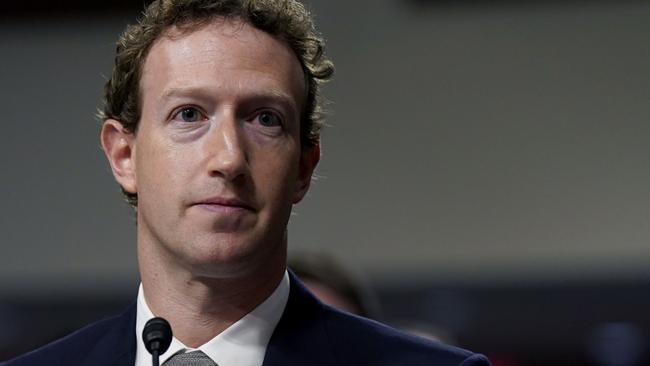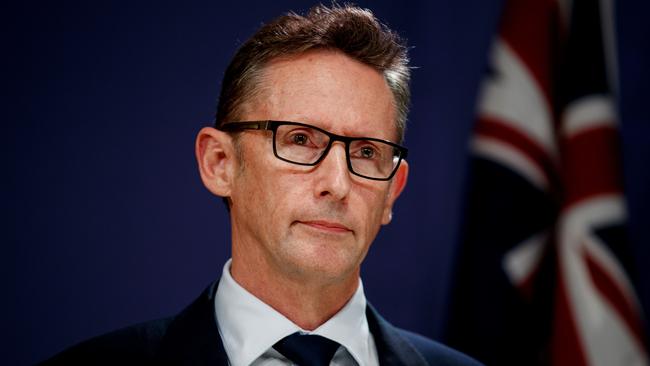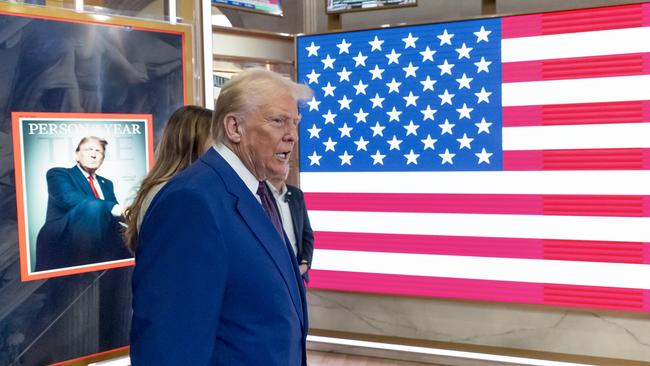How Labor cornered Meta and other social media giants to make them pay for Australian journalism
Mark Zuckerberg may have the metaverse, but Australia is playing “four dimensional chess,” keeping one step ahead of the tech giant. This is how Labor made its first move.
National
Don't miss out on the headlines from National. Followed categories will be added to My News.
Mark Zuckerberg may have the metaverse, but here on earth Australia is playing “four dimensional chess,” keeping one step ahead of the tech giant seeking to avoid paying for local journalism.
Months before Facebook parent company Meta announced in March it would not renew expiring commercial deals with Australian publishers compensating them for the news content they profit from, the federal government was already making moves.
Assistant Treasurer Stephen Jones had watched with concern in August 2023 as Meta had unceremoniously stripped all news content from its platforms in Canada after the country had also tried to force the tech company to the negotiating table with local media organisations.
He feared a similar fate awaited Australia, and had already begun to consider options by the time Meta formally told the government it would not renew its deals made through the News Media Bargaining Code with media companies like Nine Entertainment, ABC, Guardian Australia, Seven West Network and News Corp Australia, publisher of this masthead.

Oh Canada
Canada’s experience was a warning sign.
Clearly in the years since Meta had briefly ripped all news content from its platforms for Australian users, its resolve not to pay for journalism had hardened.
The company was no longer afraid of the public backlash it had endured in February 2021 when it banned news in Australia for more than a week in response to the introduction of the code.
Meta’s ban had lacked nuance with the company coming under fire for removing pages on Facebook dedicated to charities, emergency services and other community interests that weren’t strictly traditional news.
A flurry of phone calls and texts between Zuckerberg and then-Treasurer Josh Frydenberg got the Meta boss over the line, and his company ultimately signed onto three-year deals with all major Australian news outlets.
As a first-mover on the issue, Australia had caught Meta in a vulnerable enough position that it was easier for the company to agree than go to war.
By 2024 there was to be no advantageous element of surprise.

Zuckerberg’s Aussie ire
Once Meta had confirmed it would not negotiate new commercial arrangements with Australian news organisations, only two outcomes were likely under existing regulation.
The government could “designate” Meta to force them into mediation to set terms for a revenue-sharing deal with Australian companies, but it was highly likely Zuckerberg would simply dump all news content to avoid this.
Or the company could be permitted to blatantly flout the laws and leave Australian publishers some $200 million worse off.
Labor needed a way to entice Meta, and any other tech companies that may follow its lead, back to the negotiating table and there was only one thing that was going to get them talking: money.
The government had to create a financial incentive to rebalance the bargaining power between Meta, Google, newcomers like Bytedance (owner of TikTok) and Australian publishers, while pre-emptively ensuring there were no loopholes the multi-billion dollar digital empires could exploit.
As Jones described it, the government had to play “four dimensional chess”.

Big tech’s Trump card
But as he got to work with Communications Minister Michelle Rowland to develop a mechanism, another risk factor emerged.
How the re-election of Donald Trump as US President would impact the fallout if Australia pursued financial penalties for these American tech companies was a huge unknown.
One insider familiar with the government’s talks said the concern stemmed from how “terribly active and successful” the big tech firms had been in making sure their current way of operating was “not in danger”.
“With Trump in (the presidency), the question became what would he do? He’s an isolationist and all for American companies, but he’s also no fan of Facebook,” the source said.
The way forward
Mindful of the potential international implications, Labor quickly resolved not to go down any path that might be perceived as a “tax” on big tech.
Equally of importance was to not lump any amendments to the code in with other legislative efforts in the tech space, with one government source saying any perception of an all-out “war on social media” was unhelpful.
Instead, the government struck a balance whereby the threat of a financial penalty would be used to bolster the existing code through which companies could continue to make commercial deals.
Ideally, companies opt to negotiate rather than pay the harsher penalty for those who refuse.
To maximise the chance of success, Labor adopted a “no surprises” policy, with Meta, Google and others all briefed in the lead up to the final announcement.
But a senior Labor figure said the government was not naive about declaring “victory” just yet.
While the changes mean it will make more commercial sense for Meta to do deals with Australian publishers than not, the tech giant may not view capitulation as tenable if it serves to embolden other countries also seeking to make it fairly compensate local publishers for news content.
Labor will consult on its new proposal and is already preparing for push back from the tech execs.
But for now, it’s Zuckerberg’s move.
More Coverage
Originally published as How Labor cornered Meta and other social media giants to make them pay for Australian journalism




